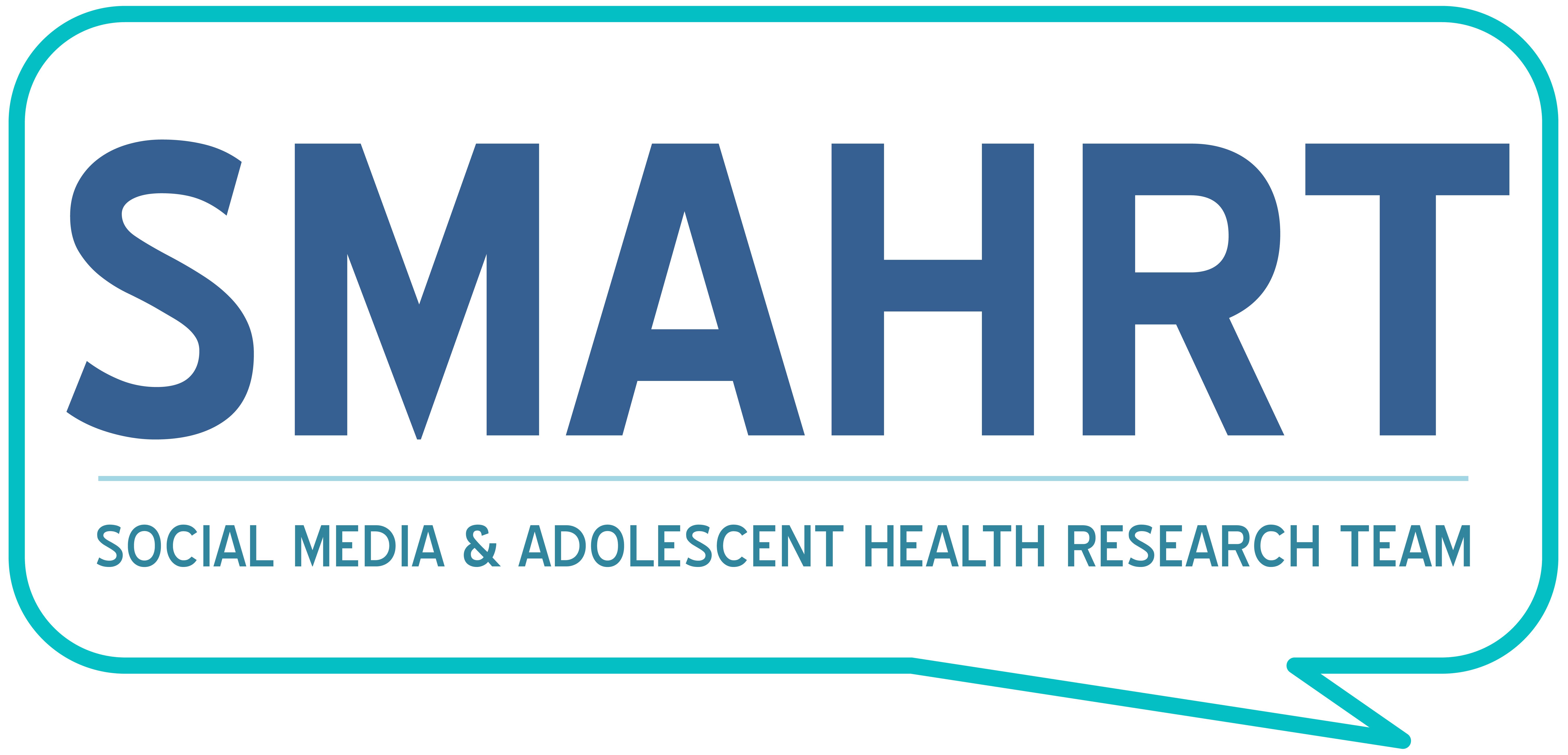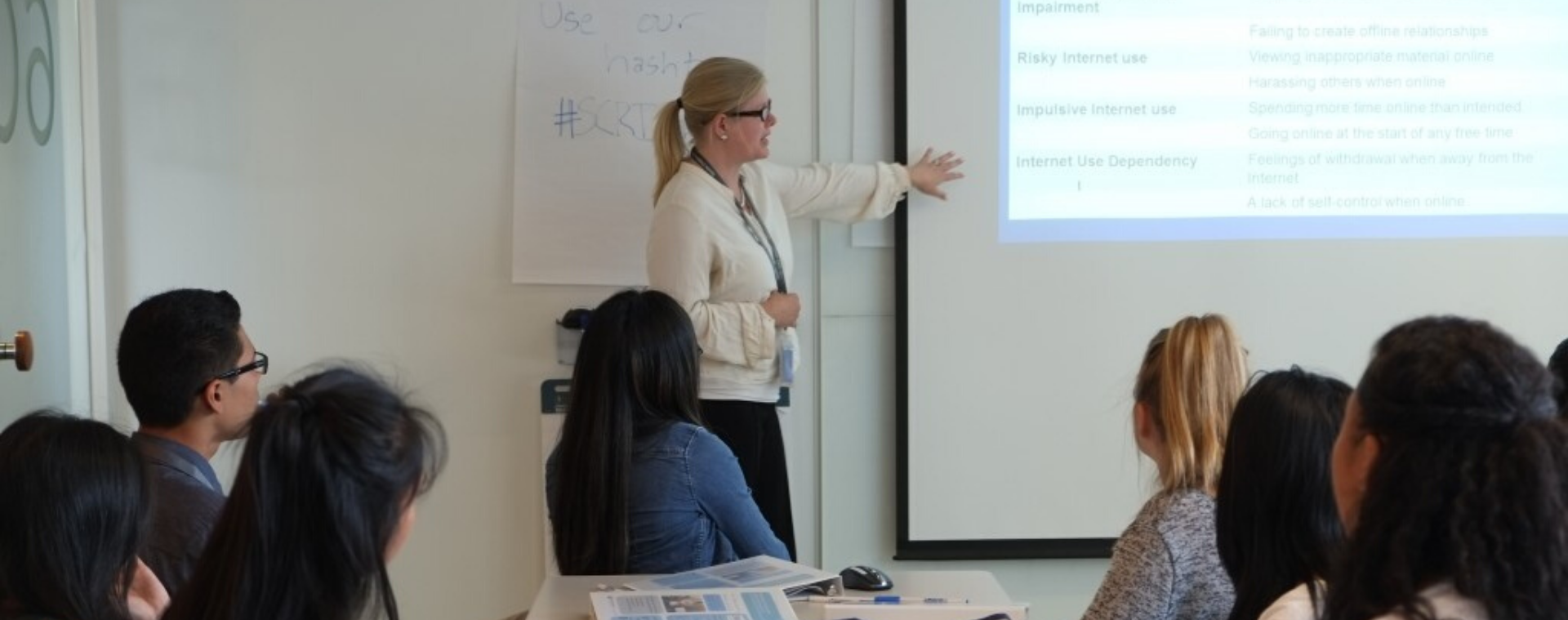Written by: John Ventura: Communications Intern
The International Bullying Prevention Association Conference (IBPA) is an international conference that brings together some of the brightest research minds throughout the world to help better implement bullying prevention across many industries.

This year, SMAHRTeam member, Reese Hyzer made the trip to Chicago to present on new data from the bullying news media study. This part of the study analyzed parents’ and adolescents’ perspectives on news media articles about bullying. This study found that “both parents and adolescents preferred prevention information and facts and statistics,” rather than single-story articles. This distinction can be attributed to how “[an] article is about one case, [and] does not give [the reader] anything to do. There is no tangible takeaway.”
The majority of attendees were not just researchers, however, school-admins, law enforcement officers, video game companies, Microsoft, Twitch, and Instagram representatives all invested time to see their own respective roles in bullying prevention.
This was Reese’s first time at the IBPA conference. Coming in with “an open mind,” she was fascinated to see how research fits into bullying prevention. With multiple systems coming together, Reese was really intrigued about each group’s respective responsibilities in the research process.
“My biggest takeaway… was seeing the intersection of the responsibility of researchers [and] also the responsibility of different companies that make gaming and social media platforms. Also, the part that nonprofits can play in helping people at more of the ground base level and how schools can implement interventions as well to help students”

For instance, law enforcement’s access to suspicious activity reports online, Microsoft observing how people are using technology, and researchers collecting different sample sizes and data from different populations are all ways each organization is contributing to help stop bullying.
Reese was also “interested to see industry insight and things they are implementing to mitigate these [bullying issues]”. Video game chat-moderation and companies reporting inappropriate content, whether through AI or Humans, are a way for video-game companies to better prevent inappropriate and offensive online content. However, there seems to be a barrier in the recognition of this process as companies may work to create new bullying prevention strategies without the promotion of their content changes.
Aside from bullying prevention, another large topic at IBPA was Internet Gaming Disorder. Both researchers and industry expressed concern about this disorder. Industry stressed the importance of proving or disproving whether Internet Gaming Disorder exists. Reese saw this as a call to action for academia and researchers to study and learn more about this disorder.

Moreover, Reese shared a study being conducted at the University of Nebraska-Lincoln on how bullying prevention techniques are being implemented in schools. Rather than just giving bullying perpetrators an in-school suspension (ISS), the parents of these students were given the option for their child to complete an intervention that identified and addressed the student’s individual, family, and cultural factors to understand why they engaged in these behaviors. This shift toward mental health and well-being are important as the IBPA looks to help students.
Here at SMAHRT, we are proud of Reese’s presentation and participation at the conference. A conference where she acknowledges that “everyone was really passionate about decreasing…and preventing bullying.” The insight she provided at the IBPA conference has been exceedingly valuable to SMAHRT’s mission of researching and improving adolescent health.

